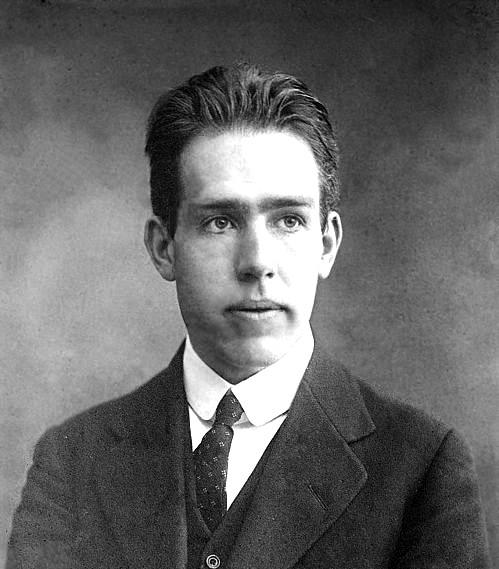As the saying goes, in the face of indecision, quantum mechanics. Quantum mechanics is a completely different mode of thinking from classical physics, so although it is very popular, many people still do not understand what it is studying. Bohr was the main founder of quantum mechanics, and we can understand how quantum mechanics developed through him.

Bohr (1885-1962), Danish physicist, member of the Royal Danish Academy of Sciences, winner of the 1922 Nobel Prize in Physics, made significant contributions to the development of quantum mechanics.
Bohr was six years younger than Einstein, and they won the 1921 and 1922 Nobel Prizes in Physics, respectively. They met in 1920 and began a debate that lasted for more than thirty years and forged a deep friendship.
Bohr's contributions to physics:
1. Bohr atomic model
At this time, Rutherford's model of atomic nucleus structure had been accepted by the scientific community, but the interpretation of atomic radiation was still controversial.
Bohr argues that an electron cannot orbit in arbitrary orbits like a planet, but can only orbit certain orbits in which the electron's angular momentum must be an integer multiple of Planck's constant. Electrons can only transition from one "steady state to another", and electromagnetic radiation occurs during the transition.
2. Atomic radiation theory
Atoms are not continuous when absorbing and emitting energy, they can only be part by part, and the energy is quantized, and the smallest unit is called the energy particle, referred to as the quantum. hv=E-E0
Bohr's radiation theory explains the phenomenon of hydrogen atom spectroscopy well.
3. The "principle of complementarity" was proposed. Bohr believed that the state of the particle is very peculiar, it is wave-particle duality, it is sometimes a particle and sometimes a wave. It is a particle when you look at it, it is a wave when you are not looking at it. This claim is still controversial to this day.
The basic assumption of quantum mechanics is the uncertainty principle, and unlike Newtonian mechanics, we cannot calculate where a particle will appear at the next moment based on its initial state, we can only estimate the probability of it appearing at a certain location.
Bohr founded the Institute of Physics at Genhagen University, which produced many outstanding physicists and became the forefront of quantum mechanics research. He also participated in the "Manhattan" project of the American atomic bomb, and like Einstein opposed the arbitrary use of the atomic bomb, he called for peace in World War II.